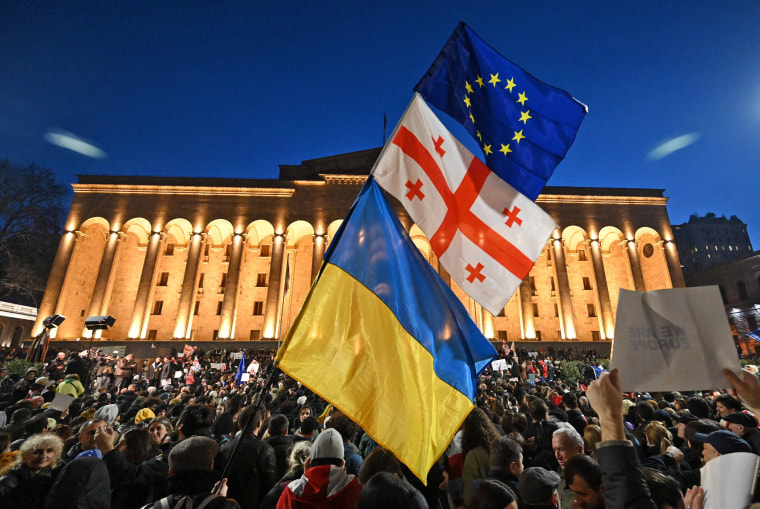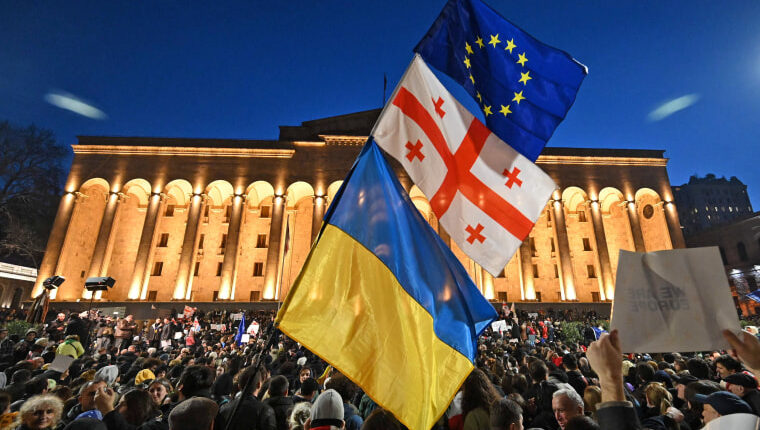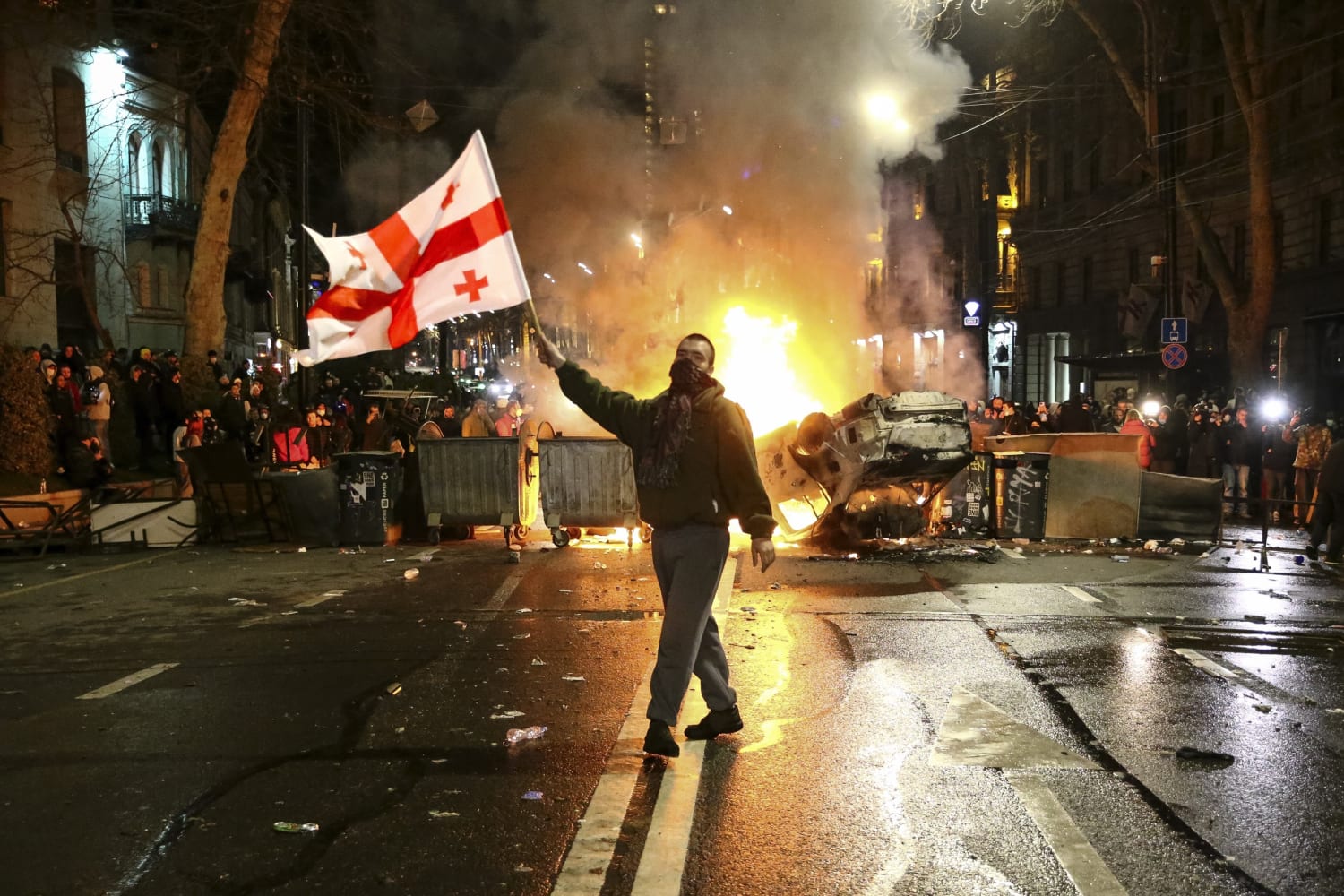The former Soviet state of Georgia is caught between its historic ties to the East and a future that may lie closer to the West. Its government, viewed by critics as too friendly with the Kremlin, has been rocked by mass protests in the capital.
Parliament on Friday voted to drop a bill that fueled fears of Russian influence and comparisons to Ukraine, after tens of thousands of people took to the streets of Tbilisi to rally against the legislation they saw as a threat to the country’s democratic freedoms and a barrier to any future hopes of joining NATO and the European Union.
NBC News takes a look at what we know so far.
What sparked the protests?
The massive and energetic protests in Tbilisi last week began after the ruling Georgian Dream party introduced a bill on foreign influence that passed its first of two readings on the parliament floor.
The bill would have obliged media outlets, nongovernmental organizations and even individuals to register with the state as foreign agents if they receive more than 20% of their annual income from foreign entities.

The ruling party claimed it was necessary for national security and the bill’s authors said it was modeled on the Foreign Agents Registration Act of 1938, which the United States enacted to expose Nazi propaganda and requires people to disclose when they lobby in the U.S. on behalf of foreign governments or political entities.
Critics called the proposal a “Russian law” and warned it could be used to curtail media freedoms and stifle dissent.
Opposition lawmaker Salome Samadashvili told NBC News on Thursday that it was similar to one enacted by Russian President Vladimir Putin in 2012, a law that has been used to shut down or discredit organizations that are critical of the government.
There, she said, it was used “to suppress the democratic opposition — NGOs, journalists and basically everyone who had any financial or political independence … That is why we call it the ‘Russian law.’”
After it was introduced and voted on swiftly by Georgian Dream, which holds a sizable majority in Parliament, tens of thousands of protesters swarmed the capital and rallied outside the parliament building for several days, undeterred even after they were met with tear gas and water cannons.
What did the government do?
With the protests showing little sign of abating, lawmakers in the Black Sea nation of 3.7 million began to back away from the bill Wednesday evening and a discussion about the proposal was canceled Thursday.
However, the demonstrations continued into Friday morning, with protesters calling for the bill to be abandoned entirely.
And in a session that lasted minutes parliament obliged as MPs voted to drop the bill Friday after Georgian Dream said it would withdraw the legislation.
Where does Ukraine come in?
In the years leading up to Putin’s fateful decision to launch a full-scale invasion of Ukraine last February, the Kremlin liberally used its foreign agent law to suppress what remained of the political opposition and the independent media in Russia.
“The war in Ukraine has made this even clearer,” Ana Tsitlidze, a Georgian opposition MP, said in an interview. “With this law, the government is trying to do the same thing that Putin did in Russia: kill free speech and nongovernmental organizations.”
Source: | This article originally belongs to Nbcnews.com










